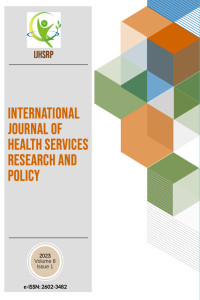Abstract
On February 6th, 2023, Turkey experienced two severe earthquakes, just nine hours apart from each other, centered in Kahramanmaraş. The first earthquake hit at 04:17 am, measuring 7.8 on the Richter scale, and the second at 1:24 pm on the same day with a magnitude of 7.6. These earthquakes, described as the disaster of the century, affected 11 provinces in the Eastern Anatolia and Southeastern Anatolia Regions; Kahramanmaraş, Adıyaman, Hatay, Osmaniye, Diyarbakır, Adana, Gaziantep, Malatya, Elazığ and Şanlıurfa. Approximately 15.8 million people living in the earthquake zones were directly affected. Subsequently, many aftershocks occurred in cold winter conditions, preventing people from entering their homes for a long time and having to survive outside. The Minister of Interior Disaster and Emergency Management Presidency stated that 57,029 buildings were destroyed in the earthquakes, more than 50,000 people lost their lives in which more than 7000 were refugees, 107,000 were injured and approximately 850 of them were amputated [1]. About a month after the earthquakes, the earthquake area was affected by heavy rains and floods. In the UNICEF report, it was stated that 4 million children had difficulty in accessing education due to the disasters [2]. The Ministry of Health announced that one out of four hospitals in the disaster area was severely damaged [3]. Approximately 2.7 million people left their homes in the disaster area.
In addition to the academic and other staff working in the universities in the disaster area, the students lost their lives, their homes, as well as those who lost their families and friends, as well as the number of those affected by the earthquakes. Although two months have passed since the earthquakes, some of the victims whose houses were destroyed stay in dormitories and similar shelters, while others try to survive in tents and containers. Psychological problems such as post-traumatic stress disorder, anxiety and depression have emerged, as well as problems related to nutrition and hygiene, as well as the risk of epidemics.
In response to the suffering caused by the earthquakes and the problems encountered, the effort to help people deeply affect and share the pain has also been noteworthy. Search and rescue teams from many countries of the world, support messages sent from different geographies of the world and aid materials have been a hopeful and proud moment for humanity.
In these difficult days, we tried to publish the first issue of International Journal of Health Services Research and Policy for 2023. The reviewers, authors and editors of our journal tried their best, but due to the adverse work conditions caused by the earthquakes, the review process of the articles was delayed. Despite all the negativities though, we managed to publish the first issue of the 2023th volume of our journal with a limited number of studies.
We are grateful to all editors, reviewers and authors for their contributions, collaborations and devotion. Hope to meet again in happier days away from all disasters...
Keywords
Details
| Primary Language | English |
|---|---|
| Subjects | Health Care Administration |
| Journal Section | Editorial |
| Authors | |
| Publication Date | April 30, 2023 |
| Submission Date | April 28, 2023 |
| Acceptance Date | April 28, 2023 |
| Published in Issue | Year 2023 Volume: 8 Issue: 1 |








